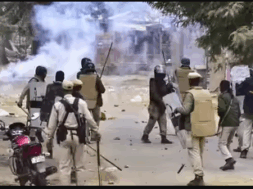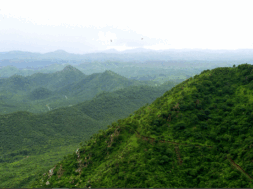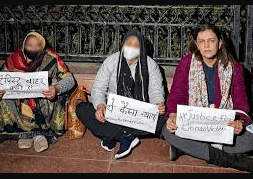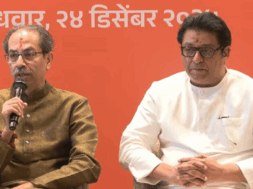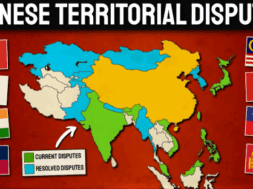
NEW DELHI, Feb 8: The Union Home Minister Amit Shah said on Thursday that the Government has decided to immediately scrap the Free Movement Regime (FMR) along the India-Myanmar border to ensure the internal security of the country and to maintain the demographic structure of India’s North Eastern States.
The Ministry of Home Affairs (MHA) has recommended the immediate suspension of FMR, he said. “It is Prime Minister Shri Narendra Modi Ji’s resolve to secure our borders. MHA has decided that the FMR between India and Myanmar be scrapped to ensure the internal security of the country and to maintain the demographic structure of India’s North Eastern States bordering Myanmar. Since the Ministry of External Affairs is currently in the process of scrapping it, MHA has recommended the immediate suspension of the FMR,” Mr Shah posted on X.
Under the FMR, any member of a hill tribe, who is a citizen of either India or Myanmar, and who resides within 16 km of the border on either side, can cross on the production of a border pass, usually valid for a year, and can stay up to two weeks per visit.
India and Myanmar share an unfenced 1,643 km-long border and people on either side have familial and ethnic ties, which had initially prompted the arrangement. A 1968 government notification limited the free movement of people up to 40 km on either side of the border, which was further reduced to 16 km in 2004. The FMR’s provisions were last revised in 2016.
In its 2011-12 annual report, the MHA observed that the FMR makes the international border extremely porous, and the hilly and inhospitable terrain provides cover to the activities of various Indian Insurgent Groups (IIGs). “The unfenced Indo-Myanmar border with FMR is thus being exploited by various IIGs,” the report said. The India-Myanmar border passes through the States of Arunachal Pradesh (520 km), Nagaland (215 km), Manipur (398 km), and Mizoram (510 km).
The Union government had initially planned to fence a 10 km stretch along the border at Moreh in Manipur in 2010 and 4.07 km of fencing had been put up till 2013-14, while the Congress-led United Progressive Alliance (UPA) was in power. The MHA’s latest annual report for 2022-23 says that 6.81 km of fencing has been completed, which means that the BJP-led National Democratic Alliance (NDA) government has added less than three km of fencing over a nine year period. Out of 1,643 km, the demarcation of 1,472 km has been completed.
“Out of the total border length, a 10 km stretch in Moreh, Manipur, has already been fenced. Furthermore, two pilot projects of fencing through a Hybrid Surveillance System (HSS) are under execution. They will fence a stretch of 1 km each in Arunachal Pradesh and Manipur. Additionally, fence works covering approx 20 km in Manipur have also been approved, and the work will start soon,” he added. A tender floated last year for HSS estimated the cost of the project at ₹3.2 crore for one km.
Officials pointed out that FMR had several drawbacks and its implementation always fell in the grey. “There is no standard document or border pass recognised by both the countries. Though Assam Rifles, a central force is deployed along the Myanmar, the implementation of FMR through border passes is done by the State government officials. The other international borders such as Bangladesh and Pakistan, the border check posts are manned by Bureau of Immigration officials under MHA,” said the official.
The official added though FMR allows two visits per week, there is no mechanism to check when the person has entered. “If someone is caught along the border, they simply say that they entered a while ago. There are people who live in Myanmar but work in India during the day,” the official added. Official also point out that the terrain was such that in some places one part of a house falls in Myanmar and the other in India.
The official added that the issue of streamlining the FMR has been discussed with Myanmar on several occasions, but that the neighbouring country showed no urgency on the issue. “For Myanmar, the western border with India is relatively peaceful, in comparison to its eastern or northern borders. They have always dithered on the subject. Now with a military coup in place in the country since February 2021 and the subsequent civil war, it is not a priority for them,” the official said.
Mr Shah’s announcement on the FMR comes soon after his February 3 meeting with Manipur Chief Minister N. Biren Singh in Delhi. The CM has often blamed the FMR for the ongoing ethnic violence between the tribal Kuki-Zo and the Meitei communities in the State, though in fact, Manipur had suspended the regime in 2020 itself due to the COVID-19 pandemic.
The tribal Zo people have a major presence in Manipur and Mizoram, as well as in parts of Assam and Nagaland, and adjoining areas of Bangladesh and Myanmar. Similarly, Nagas live in Nagaland, Manipur, Arunachal Pradesh, and Assam, as well as in neighbouring Myanmar.
(Manas Dasgupta)

